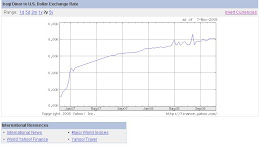General manager of the Taxes General Institution, Talib Muhsin Jabir Abu Gaillah, expected that tax revenues will rise by 50% from what they were last year, praising the role played by private sector companies in support of those revenues through their continuous respond to tax and avoid tax evasion, while representatives of some private sector companies called to raise customs deductions on goods and materials entering Iraq in order to activate the role of local industry.. Abu Gaillah added in a symposium organized by the Institution along with a number of representatives of private sector companies: The Institution constantly seeks to support the local product and Iraqi private companies through reducing or eliminating tax deductions on them, pointing out that this step was taken in an effort to raise the productive capacity and to support local Iraqi industry in order to make it a strong competitor of the imported goods. He also explained that the cuts’ rate is minimum compared with the neighboring countries that impose high tax rates on their corporations, but the Institution had consistently supported Iraqi economy and encouraged domestic or foreign investment.
A number of private sector representatives participating in the symposium called for accelerating the drafting of high customs deductions on imported goods which would help to promote the country’s industrial status.. They said in their conversations during the symposium: Many of the materials and goods coming across the Iraqi border are not covered by tax deductions which led to the suspension of the local industry almost completely, pointing out that many of the goods entering are not compatible to the specifications and metrology of the Quality and Control Body and often have less quality than the local product. They also called for exempting the local product from tax deductions in order to support and encourage the factories producing it... The representative of Bunnia group companies, Hashim Jassim, said that local industry is facing great pressure by not providing the proper environment represented by the insufficiency of fuel, and opening the borders to imported goods, in addition to many other obstacles standing in the way of industry. Hashem added: it is very difficult to apply pure tax rules without any tolerance and not protecting the local industry from imported goods, and not supporting industrial projects, noting that it is very difficult for Iraqi industry to compete with goods entering Iraq. Representative of Iraqi Federation of Industries, Abd Jassim Hameed, considered it unlikely for taxes to be one of the impediments that are preventing the growth of industry in Iraq, indicating that the problem of industry lies in the deterioration of the security situation and the migration of capitals and professionals.
Hameed said the problem of the private sector is not in taxes, but there are many other constraints led to the weakening of this sector, where most industrial zones suffer from the lack of security, in addition to flooding the market with imported foreign products of low-quality, which have negatively impacted the sector.
Representative of Talal Albehrani commercial group companies, Yassir Isam, has proposed supporting industrial companies through supporting the final product by exempting it from tax deductions.

